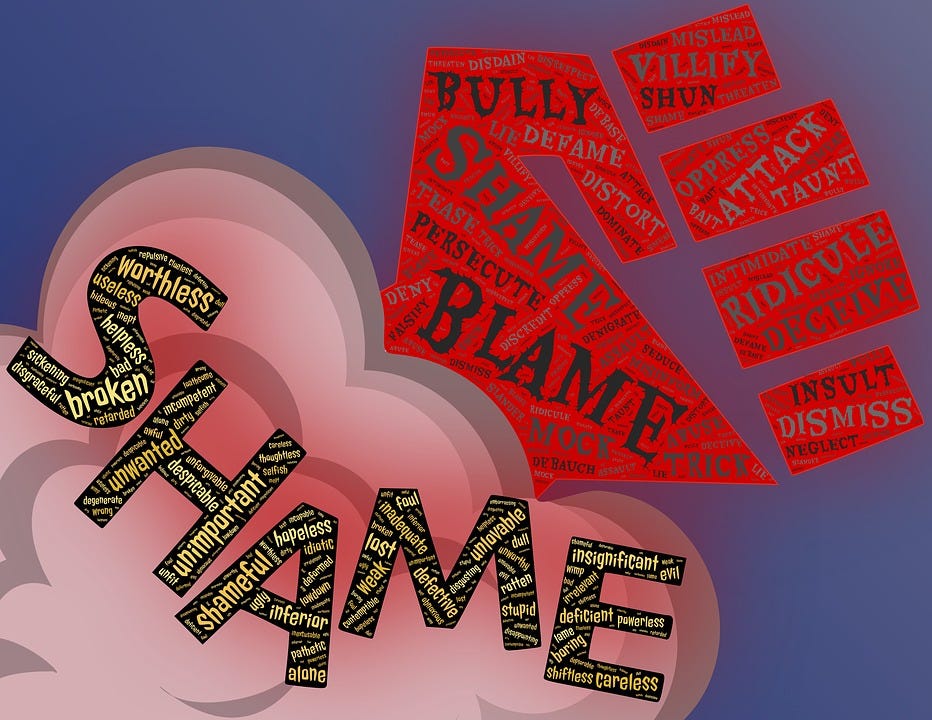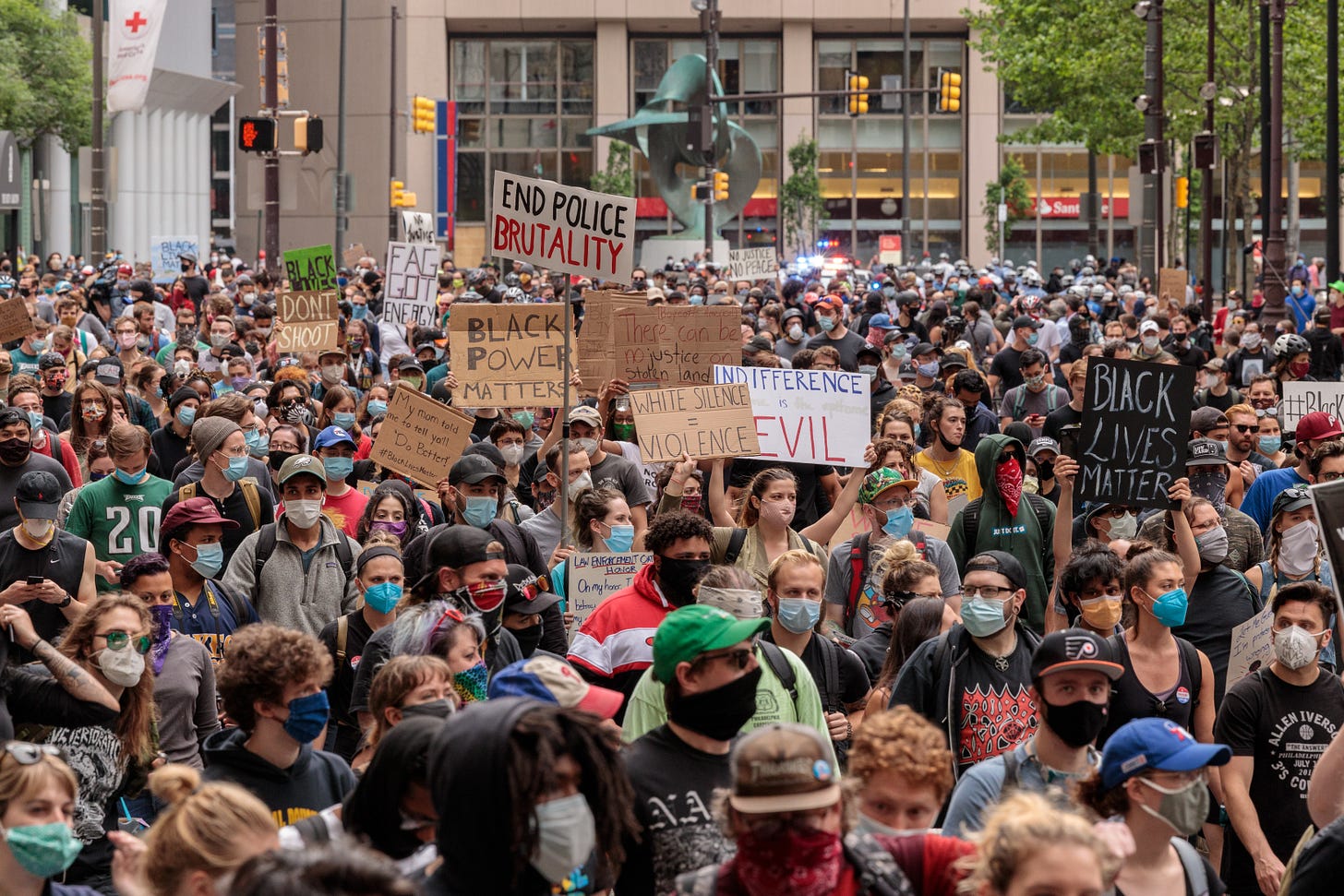What are they Thinking?: Understanding the Mind and Values of the Woke – Part 6 The Effects of Social Justice Theory
How Wokeness Hurts More than it Helps

The first post in this series: “What are they Thinking?: Understanding the Mind and Values of the Woke – Part 1 Living in ‘Escher’s World’” addressed how the contemporary Social Justice movement arose out of the convergence of Neo-Marxism and Postmodernism. The second post, Part 2 The Failure and Reinvention of Marxism” looked at the transition that took place from classic Marxism to Neo-Marxism. In Part 3 Towards Postmodernism: The Rise of Linguistic Theories, I looked at how 20th Century philosophy started to move beyond the optimism of modernism to even questioning if words have meaning. Part 4 Postmodernism and Deconstruction, examined the background to the movement known as postmodernism. Then the previous post, Part 5 Social Justice Theory described how the philosophies of Neo-Marxism and Postmodernism combined to create Social Justice Theory.
If you are unfamiliar with the concepts of Social Justice Theory, please read the previous post in this series.
Effects of Social Justice Theory
While Social Justice Theory is intended to fulfill the lofty goals of overturning historic injustice, elevating the downtrodden and paving the way for a more just society, the results have been less ideal than promised. Like so many things in this world, it has helped some people and hurt others. Contrary to its promises, many of the ones who have been most helped are those in academia or politics who use this theory to advance their agendas. Social Justice Theory has developed a somewhat ironic situation since many of its leading thinkers, most of whom are tenured faculty members often at top-level institutions, are a part of one of the most protected and advantaged classes in Western Society. Other leaders in this movement come from positions of wealth and privilege. Nevertheless, many of them claim that they are victims of oppression because they are a member of a racial or other minority. It has even been noted that despite its Marxist roots, the category of wealth has been downplayed by Social Justice advocates.[1] One such example of this can be found in the 2015 protests against racism at the University of Missouri that led to the resignation of its president, Tim Wolfe, which was led by African-American graduate student Jonathan L. Butler. In the midst of his protests based on the premise that the United States is systemically racist, it was pointed out that his father was the executive vice-president of the Union Pacific Railroad and earned over $8 million the previous year alone.[2]This created the contradictory situation where Wolfe complained of being the victim of a hopelessly oppressive society while simultaneously coming from a life of wealth and privilege.
When confronted with the reality that as academics and political leaders these individuals are in some of the most privileged positions in the world, many attempt to justify their position by arguing that while they might now have privilege, they are not oppressors since they are using their position in something of a prophetic role exposing the wider oppression in society.[3]
The Unforgivable Guilt Heaped on “Oppressors”
When turning to how this movement affects the rest of society, we find that its impact has been much more negative. Most obviously, this movement is hard for those who are deemed to be members of one or more oppressor classes. To be declared to be an oppressor means that one is guilty by association and is guilty of committing injustices even if the individual was in no way connected to them. Whites are held guilty of racism, including American slavery, even if their ancestors never owned slaves nor were even in North America before the American Civil War. Similarly, men and boys are declared to be guilty of sexism, even boys in early elementary school who have never been able to be sexist.
One of the most insidious aspects of this is that there is no means of gaining forgiveness or absolution from this guilt. There are, however, two ways to get out from underneath the burden of guilt.[4] The first is by dedicating oneself to the movement. This is one of the reasons that so many of those that participated in the Black Lives Matters protests and riots were young, white, upper-middle class men. These individuals would generally be considered to be privileged and at fault for our society’s woes. However, by joining in the movement, protesting the ills of society, and blaming others for these ills, they are able to free themselves of the guilt that they otherwise would bear.

The only other way out from this guilt is to claim oppressed status for themselves. There are even some white supremacists that take this tack. More generally acceptable to the movement is to claim to be part of a sexually oppressed group. For a white male to declare himself to be homosexual, transexual or otherwise non-binary is to move from being considered an oppressor to oppressed.
If one does not take one of these approaches, then one is beaten down with a form of guilt that cannot be forgiven. The movement can be so strident that for one to confess their guilt brings not forgiveness, but increasingly severe condemnations and calls to be cancelled. What is worse, the young are also made to feel guilty, not for what they have done, but for who they are. Reports are increasing of elementary children feeling dirty, bad, or evil for being white, male, and/or otherwise privileged.
Heaping Shame on the “Oppressed”
What about those of an oppressed class, those that the movement purports to help? Often the result is not improvement but shame. For many, a form of shame is piled upon them as they are told that they are weak, helpless victims of a corrupt system with no opportunities to get out from under it. In fact, trying to improve oneself is often treated as selling out to the oppressors. As a result, a black honors student might be shamed for “acting white,” and some even consider treating a disability as betraying others who are similarly disabled.[5]
The only answer that is allowed to those considered oppressed is to give in to rage and seek to tear down the system. There is no hope for improvement or a better life. Sadly, often the rage only makes things worse. Consider the riots in response to police brutality in the US. In many of these cases, the very neighborhoods of the people who are supposed to be the victims of oppression are burned, with stores looted and vandalized.[6] The end result is that these individuals now have a destroyed neighborhood and higher costs of living because stores either no longer want to do business there, often depriving the residents of grocery stores or other necessities, while the remaining stores must raise their prices to pay for higher insurance and security costs.
At the root of both types of labeling, the oppressed and the oppressor, is really a devaluing and disempowering of the individual. Much like its Marxist parent, the individual is unimportant, only the class.[7] Since Social Justice Theory argues that an individual is merely the product of their various cultures, it ends up removing personal agency. Either one is oppressed and cannot be blamed for what they do because society has made them that way, or else they are an oppressor, no matter what they do because society made them that way. Ultimately, this removes all personal agency and devalues all people.
Another impact of this is that through the concept of intersectionality and the multiplication of oppression binaries the population is segmented into smaller and smaller groups. This has led to a splintering of society into numerous groups.[8] The conjoining of the Foucauldian assertion that every relationship is defined by power with the definition of individuals as merely a product of their respective groups has led to a divisive identity politics.
The postmodern political principle is, in essence, a call to identity politics, which requires adopting an identity as part of some marginalized group or being assigned to a relatively privileged one. This is supported by the postmodern theme of fragmenting the universal and replacing the individual with the group.[9]
The end result, all too often, is a demoralized population that is increasingly turned against itself.
The next post in this series starts to propose ways that the Church can respond to those who are hurting because of Social Justice Theory.
[1] Helen Pluckrose and James A. Lindsay, Cynical Theories: How Activist Scholarship Made Everything about Race, Gender, and Identity - and Why This Harms Everybody, First Edition. (Durham, NC: Pitschstone, 2020).
[2] Joe Holleman, “Mizzou Hunger Strike Figure from Omaha, Son of Top Railroad Exec.,” Post-Dispatch (St. Louis, 11 November 2015), https://www.stltoday.com/news/local/columns/joe-holleman/mizzou-hunger-strike-figure-from-omaha-son-of-top-railroad-exec/article_20630c03-2a68-5e63-9585-edde16fe05f3.html.
[3] Charles Pincourt and James A. Lindsay, Counter Wokecraft: A Field Manual for Combatting the Woke in the University and Beyond, Kindle. (Orlando, FL: New Discourses, 2021), 7.
[4] James A. Lindsay and Mike Nayna, “Postmodern Religion and the Faith of Social Justice,” Areo, 18 December 2018, https://areomagazine.com/2018/12/18/postmodern-religion-and-the-faith-of-social-justice.
[5] Pluckrose and Lindsay, Cynical Theories, chapter 7.
[6] Ben Westhoff, “Ferguson Five Years after the Killing of Michael Brown,” The Verge, 6 August 2019, https://www.theverge.com/2019/8/6/20754600/ferguson-michael-brown-killing-police-brutality-2014-protests-riots-5-years-later; Ariel Zilber, “Photos Show Minneapolis’ Recovery a Year after George Floyd Riots,” Mail Online, 31 May 2021, https://www.dailymail.co.uk/news/article-9637551/Stark-photos-Minneapolis-recovery-year-deadly-looting-wake-George-Floyds-murder.html.
[7] Rod Dreher, Live Not by Lies: A Manual for Christian Dissidents (New York: Sentinel, 2020), chapter 3.
[8] Stephen Ronald Craig Hicks, Explaining Postmodernism: Skepticism and Socialism from Rousseau to Foucault, 1st ed. (Phoenix, Ariz. : Scholargy Pub., c2004.) chapter 5.
[9] Pluckrose and Lindsay, Cynical Theories, chapter 7.



